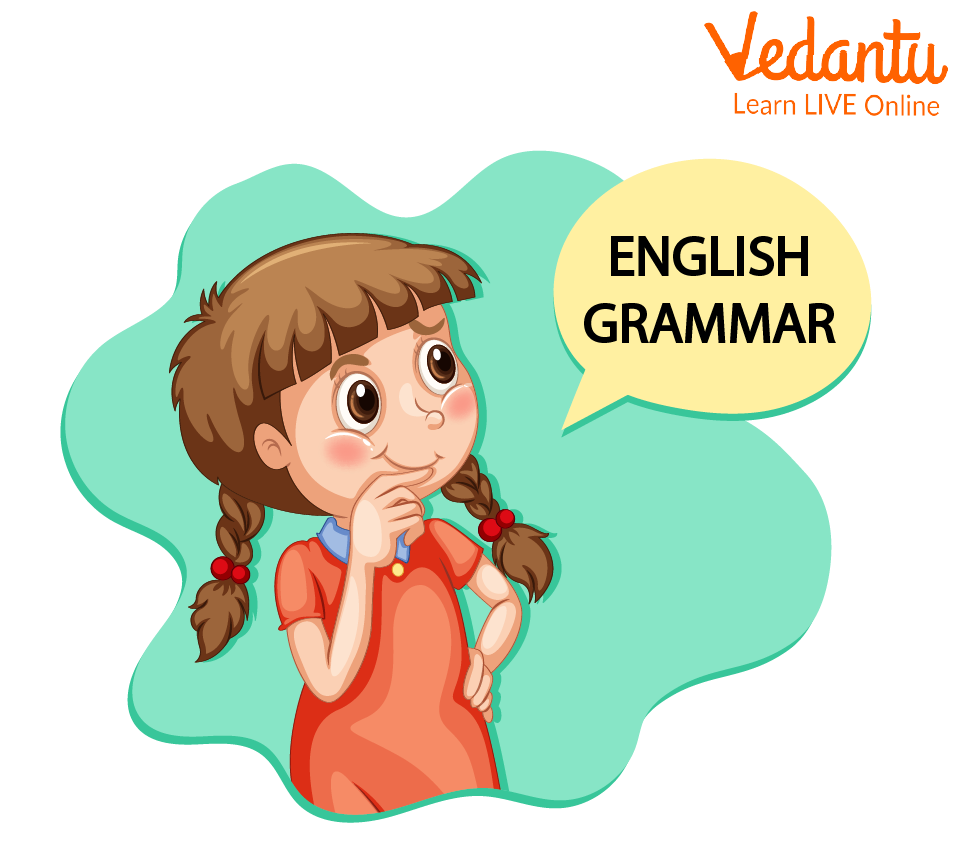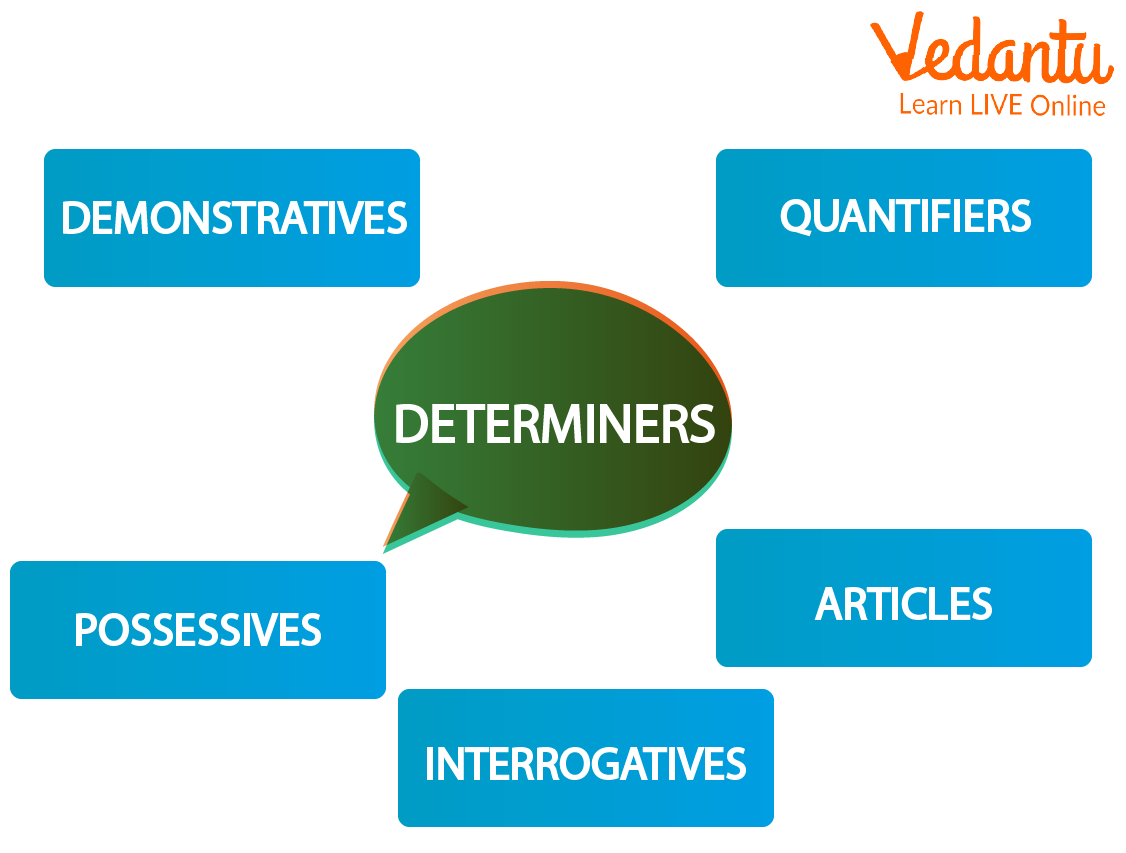Determiners Exercises and Examples for Class 10 English Grammar 2025-26
FAQs on Determiners in English Grammar for Class 10 – Complete Guide & Practice
1. What are determiners?
Determiners are small words placed before nouns that specify something about them. They can indicate:
Definiteness: whether the noun refers to a specific thing ("the book") or any member of a class ("a book").
Quantity: how many things the noun refers to ("some books", "two books").
Possessiveness: who owns the thing ("my book", "their books").
Demonstration: pointing to the location or distance of the thing ("this book", "those books").
Distribution: specifying how something is shared ("each book", "both books").
2. Why are the articles named definite and indefinite?
“A” and “An” are given the name “indefinite articles” as their usage indicates in not specifying a particular person, place, animal or thing. Hence, the noun remains indefinite.
“The” is called the definite article as it is used in sentences to specify a person, place, animal or thing in particular, so the noun is definite and sure.
3. What is the difference between determiners and articles?
Determiners are a bunch of words that are used to describe/elaborate information on nouns whereas articles belong to one of the categories of the bigger group of determiners.
There are three main determiners namely articles, possessives and determinatives whereas articles have two subcategories called definite and indefinite articles.
4. Can we use two determiners/articles in a sentence?
Of course, having any two or more determiners/articles in a sentence is very much possible.
5. How are determiners used in sentences?
Determiners usually come directly before the noun they modify. However, they can sometimes be followed by other adjectives:
The red book is mine. ("the" and "red" are both determiners modifying "book")
I gave each child a cookie. ("each" and "a" are determiners modifying "child" and "cookie", respectively)
6. How are possessive adjectives used?
Possessive adjectives show ownership. They come before the noun they modify and cannot be used with articles:
My book is on the table.
Their house is blue.
7. What is the difference between demonstratives and quantifiers?
Demonstratives point to the location or distance of the noun:
This book is new. (the book close to the speaker)
Those cats are sleeping. (the cats further away)
Quantifiers specify the amount or number of something:
I have some cookies. (an unspecified number)
We need three apples. (a specific number)



































